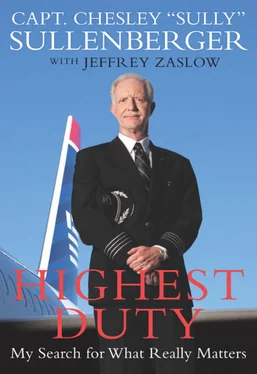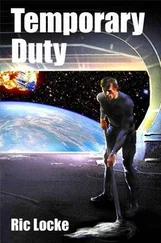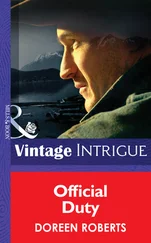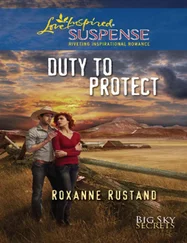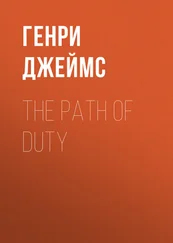After we landed in Pittsburgh on that Tuesday night, I got in a van with Jeff and the flight attendants and we headed over to the La Quinta Inn & Suites near the airport.
We had to be flying again exactly ten hours later. This was close to what we call a “minimum night.” Minimum rest for a crew overnighting between flights is nine hours and fifteen minutes. It sounds like enough time, but it’s actually pretty tight. The clock starts ticking the minute the plane arrives and is blocked in at the gate. It continues until push-back of the next morning’s flight. In between, we have to get out of the airplane, and to and from the hotel. We have to leave for the airport at least an hour, and sometimes ninety minutes, before the morning flight. Add in time for showering and getting something to eat, and our actual time sleeping is usually about six and a half hours.
Our flight that morning to LaGuardia Airport in New York left at 7:05. Because it was snowing, I handled the controls. We arrived at 8:34, got a new load of passengers, and were slated to head back to Pittsburgh at 9:15 A.M. Because of weather and traffic, we had a forty-five-minute delay on the ground at LaGuardia.
I still have my trip sheet from that week, and as always, I had scribbled notations alongside each flight. I keep track of all the actual flight times, to make sure I get paid properly. Pilots are paid per hour of flying, and “flying” is tallied from the moment you move away from the gate in one city to the moment you arrive at the gate in the next city.
Delays frustrate everybody—pilots, too, of course—but the fact is that we start getting paid when the plane has pushed back from the gate. If we sit on the tarmac for hours, we’re getting paid. If we’re waiting at the gate, we’re not.
Anyway, we got back to Pittsburgh before noon, and because we had a long layover of twenty-two hours until the next leg of our trip, we were able to spend Wednesday night farther from the airport, at the Hilton downtown. I went for a walk around Pittsburgh that afternoon by myself, bundled up in the snow, listening to my iPod. Jeff and I talked about having dinner together, but he had something to do, and so I was alone that night. The flight attendants were also on their own.
Because most US Airways flight crews are older now—no young blood has been hired for years—we’re more tired and less social than we used to be. The wilder “Coffee, Tea, or Me” days are long over, and mostly predated my airline career. About a third to half of flight attendants and pilots these days are what those of us in the industry call “slam clickers” they slam the doors to their hotel rooms and click the locks. They don’t socialize and they spend their entire layovers in their rooms.
Granted, most of them aren’t really slamming their doors. They say good night nicely and then disappear.
I understand that the constant travel is a grind, and that my colleagues are tired or don’t want to go out on the town, wasting money. And I’m not a partyer by any stretch. But I decided a long time ago that if I was going to be gone from home sixteen or eighteen days a month—spending 60 percent of my time away from my family—I wasn’t going to waste half my life sitting in a hotel room watching cable TV. And so I try at least to take a walk or go for a run. I’ll visit a new restaurant, even if I’m by myself. I try to have a life. If members of the flight crew want to join me, I’m grateful for their company. If not, I’m comfortable on my own.
On that Wednesday night, I called home and talked to my daughters. I described my walk in the snow, and asked them about what they were up to at school. They are teens now, wrapped up in their own lives, so they’re not hugely engaged in hearing details of my day. I’m always actively searching for ways to connect with them, to keep things fresh.
The next morning, January 15, it was snowing, and Jeff and I needed to take an Airbus A321 from Pittsburgh down to Charlotte.
Because of the de-icing in Pittsburgh, we were thirty minutes late arriving in Charlotte. And we switched planes there, from an Airbus A321 to an A320. That A320 was the plane that would take us to the Hudson. The flight from Charlotte landed at LaGuardia just after 2 P.M. It had been snowing in New York, but by the time we arrived, the snow had stopped.
At LaGuardia, the gate agents started loading the new passengers onto the plane. I got the flight plan for the next leg—Flight 1549 from New York back to Charlotte—and then ran to find something to eat. I bought a tuna sandwich for eight dollars and change, and expected I’d get to eat it once we were at cruising altitude on our return to Charlotte.
Back at the gate, passengers had begun boarding, and I didn’t get a chance to say anything to any of them. Some would later remark that I looked older with my gray hair, and they felt reassured that I was a veteran pilot. I just nodded and smiled at a few of them as I made my way back into the cockpit with my sandwich.
While the plane was being serviced, I checked the fuel load and the weather, and then went over the flight plan. As first officer, Jeff’s job was to take a walk around the exterior of the plane, making an inspection. Nothing seemed out of the ordinary to either of us.
It was a full flight, 150 passengers, plus the crew—me, Jeff, Sheila, Donna, and Doreen. Just before we pushed back from the gate, Jeff and I remarked to each other that we had enjoyed flying together. This would be the final leg of our trip. I was planning to leave Charlotte at 5:50 P.M., flying home to San Francisco as a passenger, and Jeff was going to head back that evening to Wisconsin.
We pushed back from the gate at 3:03 P.M. Eastern standard time, and we joined the queue of airplanes waiting for our turn to take off.
In our ears, Jeff and I heard the constant chatter on the party line of the LaGuardia Tower Air Traffic Control frequency. We were listening in and watching as airplanes took off and landed on the two intersecting runways at one of the nation’s busiest airports. As happens every day, it was a carefully choreographed ballet where everyone knew their parts exceedingly well.
At 3:20 P.M. and thirty-six seconds, the tower controller spoke to us: “Cactus fifteen forty-nine, LaGuardia, runway four position and hold, traffic will land three one.” The tower controller was instructing us to taxi onto the active runway and hold in position to await clearance for takeoff. He was also advising us that we would see traffic landing on the intersecting runway 31. (“Cactus” is the radio call sign for US Airways flights. The airline chose it after we combined with the former America West Airlines. Though it was adopted to preserve the heritage of America West, some pilots and controllers would prefer that we had kept our old call sign, “USAir,” to avoid confusion. Having a name that doesn’t match the name painted on the side of an airplane can be confusing, particularly at foreign airports.)
At 3:20:40, as I was taxiing, Jeff responded to the controller: “Position and hold runway four for Cactus fifteen forty-nine.”
We then sat on the runway for four minutes and fourteen seconds, listening to controllers and pilots trading concise esoteric exchanges such as “American three seventy-eight cleared to land three one, wind zero three zero, one zero, traffic will hold on four.” This was the tower controller clearing American Flight 378 to land on runway 31, telling him the wind was from the northeast at ten knots, and advising him that Jeff and I were holding in position on runway 4.
At 3:24:54, from controller to me and Jeff: “Cactus fifteen forty-nine runway four, cleared for takeoff.”
At 3:24:56, from me to controller: “Cactus fifteen forty-nine cleared for takeoff.”
Читать дальше
